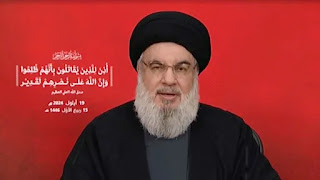Friday, November 10, 2023
Reading the holy Quran highly benefit
https://www.youtube.com/@abuzaformdsaleh
Reading the Quran, the holy scripture of Islam, is considered a highly beneficial and sacred practice for Muslims. Some of the key benefits associated with
Spiritual Guidance:The Quran serves as a spiritual guide, providing Muslims with a comprehensive understanding of their faith, morality, and ethics.
Personal Development:Regularly reading the Quran can promote personal growth and self-improvement, encouraging individuals to cultivate patience, kindness, and other virtues.
Blessings and Rewards:Muslims believe that reading the Quran brings abundant blessings and rewards from Allah. It is considered an act of worship and devotion, leading to spiritual fulfillment and inner peace.
Knowledge and Wisdom:The Quran contains valuable knowledge and wisdom that can provide insights into various aspects of life, including history, law, ethics, and spirituality.
Protection and Healing:Many Muslims believe that reciting specific verses from the Quran can provide protection from harm and illnesses. It is often regarded as a source of spiritual healing and solace during difficult times.
Community Cohesion:Reading and studying the Quran together can strengthen the sense of community and brotherhood among Muslims. It fosters a shared understanding of religious values and principles, promoting unity and harmony.
Reflection and Contemplation:The Quran encourages believers to reflect on its verses and apply its teachings to their daily lives. This process of contemplation fosters mindfulness and a deeper connection with one's faith.
Overall, the Quran is regarded as a source of divine guidance and a means of spiritual growth for Muslims. Its teachings promote virtues such as compassion, justice, and humility, guiding individuals toward a life of righteousness and piety.
Learning the Quran, the holy scripture of Islam, is considered an essential and highly rewarding practice for Muslims. Some of the key benefits associated with learning the Quran include:
Understanding the Message:Learning the Quran allows individuals to comprehend the teachings, principles, and values of Islam. It facilitates a deeper understanding of the faith and promotes spiritual growth and development.
Spiritual Fulfillment:Studying the Quran leads to a deeper spiritual connection with Allah, promoting a sense of peace, contentment, and purpose in life.
Moral and Ethical Development:The Quran teaches essential moral and ethical principles that guide believers toward virtuous behavior, such as honesty, kindness, and compassion.
Religious Practice:Learning the Quran enables Muslims to perform religious rituals, such as prayers and recitations, in accordance with Islamic traditions and teachings.
Community Leadership:Individuals who have studied the Quran thoroughly often play vital roles in their communities as religious leaders, scholars, and educators, providing guidance and support to fellow Muslims.
Preservation of Tradition:By learning the Quran, individuals contribute to the preservation of Islamic traditions and cultural heritage, passing down sacred knowledge to future generations.
Personal Empowerment:Understanding the Quran empowers individuals to make informed decisions in their personal and professional lives, guided by Islamic principles and values.
Interfaith Understanding:Knowledge of the Quran can foster interfaith understanding and dialogue, promoting harmony and respect among individuals from diverse religious backgrounds.
Intellectual Stimulation:Studying the Quran encourages critical thinking and intellectual stimulation, as it involves interpreting and analyzing complex religious texts and historical contexts.
Overall, learning the Quran is regarded as a lifelong journey that promotes spiritual growth, ethical development, and a deeper connection with one's faith. It serves as a guide for leading a righteous and fulfilling life, both within the Muslim community and in the wider society.
Teaching the Quran is considered a noble and highly rewarding act in Islam, carrying numerous benefits for both the teacher and the community. Some of the key benefits associated with teaching the Quran include:
Spiritual Rewards:Teaching the Quran is believed to bring immense spiritual rewards from Allah, as it involves spreading knowledge and guidance to others.
Community Building:Quran teachers play a crucial role in building and strengthening the Muslim community by imparting religious knowledge, fostering a sense of unity, and promoting ethical values among students.
Preservation of Islamic Tradition:By teaching the Quran, individuals contribute to the preservation and dissemination of Islamic tradition and knowledge, ensuring that sacred teachings are passed down to future generations.
Personal Development:Teaching the Quran requires patience, dedication, and a deep understanding of the scripture, leading to personal growth and spiritual enrichment for the teacher.
Leadership and Guidance:Quran teachers often serve as leaders and role models in their communities, providing guidance and support to students and fellow community members in matters of faith and spirituality.
Promoting Understanding:Through teaching the Quran, individuals can promote a better understanding of Islam, dispelling misconceptions and fostering interfaith dialogue and mutual respect.
Educational Impact:Empowerment of Others:By sharing the teachings of the Quran, teachers empower others to live according to the principles of Islam, promoting positive values and behaviors within the community.
Blessings for Generations: Teaching the Quran is seen as a virtuous act that brings blessings not only to the teacher but also to their students, as they carry forward the knowledge and teachings to future generations.
Overall, teaching the Quran is regarded as a sacred duty and an act of service to the Muslim community, contributing to the spiritual, intellectual, and moral development of individuals and society as a whole.
Subscribe to:
Post Comments (Atom)
Israel killed Hezbollah leader Hassan Nasrallah in Beirut strike, group confirms
Hezbollah leader Sayyed Hassan Nasrallah gives a televised address on September 19, 2024, in this screenshot taken from a video. Al-Manar T...

-
It's the southernmost post of exit from Gaza and borders Egypt's Sinai peninsula. There are only two other border crossings from an...
-
Freelancing is a form of self-employment where individuals offer their skills and services to clients or businesses on a project-by-proje...
-
E-commerce, short for electronic commerce, refers to the buying and selling of goods and services over the internet. It has become a si...



No comments:
Post a Comment